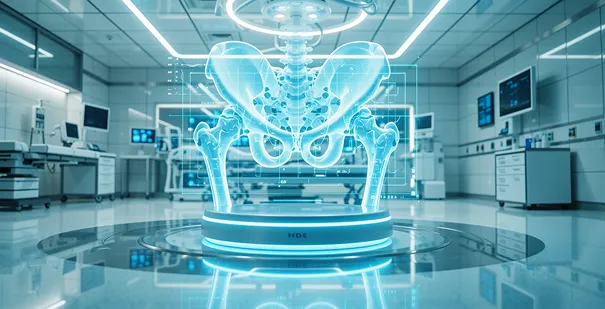Hip Stem-Cell Therapy in Dallas–Fort Worth
Walk-In Relief for Arthritis, Labral Tears & Bursitis
Why Choose NTX Regen Center?
Three-Specialty Team
One visit = three expert opinions & a unified plan
Live Ultrasound or X-ray guidance
Pin-point delivery to the joint & labrum
On-site MRI, cell lab & rehab
Zero extra trips across town
5 DFW Clinics + Saturdays
Get treated when pain flares
4.8-Star Rating by People
Proven results for North-Texas
Conditions Treated with Hip Stem Cell Therapy
- Early-stage osteoarthritis
- Labral tears & FAI-related fraying
- Avascular necrosis (pre-collapse)
- Greater-trochanteric bursitis
- Tendon & gluteus-medius injuries

Two-Month Hip Regeneration Plan
Day 0
- Consult + Dynamic Ultrasound
Ortho exam & gait check - MRI & Stem-Cell Collection
from hip marrow or blood - Rapid Cell Concentration (~45 min)
in ISO-Class 5 lab - Image-Guided Injection
Into the labrum, joint capsule & bursa
Week 1-5
6 PT + Class IV Laser Sessions
Restore ROM & glute stabilizers
Week 6
Optional PRP Booster
For high-impact athletes
Week 8
Strength Re-check & Return-to-Sport plan
Functional hop & squat tests
Why Patients Pick Stem-Cells Over Surgery
- Repairs micro-cartilage—not just numbs pain
- Walk-out procedure: ~2 hrs, no hospital stay
- 100 % autologous: zero donor tissue or ethics issues
- Built-in rehab so gains become permanent
Quick Check: Are You the Right Candidate?
- Pain > 3 months despite PT
- MRI shows early arthritis or labral tear
- Want to delay—or skip—replacement
- No active infection

Stem Cells vs Steroid Shots vs Fusion
Evidence Snapshot
- 72 % of early-arthritis hips kept their original joint at 18 months after one stem-cell injection
- Low-intensity pulsed ultrasound boosted MSC efficacy in cartilage repair, suggesting faster pain relief when combined with image-guided injections.
Recovery Timeline – What You’ll Feel
Day 1
Mild ache; cane optional
Day 7
Walking ½ mile pain-free
Day 30
Climbing stairs without a groan
Day 60
Jogging drills & return-to-golf swing
Meet Our Care Team
Board-Certified Orthopedic Spine Surgeon
- Specializes in cervical, thoracic, and lumbar spine surgery
- Fellowship-trained in spinal reconstruction surgery
- Board Certified by the American Osteopathic Board of Orthopedic Surgeons
- Published researcher in Spine and national conference presenter (NASS, SRS)
Board-Certified Pain Management & Rehabilitation Specialist
- Fellowship-trained in interventional spine & pain management
- Board Certified in Physical Medicine and Rehabilitation
- Expertise in musculoskeletal pain, neuromuscular disorders, and electrodiagnostics
- Member of AAPMR, AAP, and American Osteopathic Association
Board-Certified Radiologist & Neuroradiologist
- Board Certified in Radiology with CAQs in Interventional Radiology and Neuroradiology
- Fellowship-trained in both interventional radiology and neuroradiology
- Former Chief Resident at University of Nebraska Medical Center
- Member of ACR, RSNA, SIR, and International Spine Intervention Society
Now Offering Hip Stem Cell Therapy Across DFW
What Our Patients Are Saying
Candy Ramirez
“Thank You Kassi for explaining my MRI’s in great detail. I really appreciate the time ya’ll guys took with everything. ”
Samantha Costello
“In my life I’ve only met a small number of wonderful caring doctors, I can’t remember my dr’s name but wow was he amazing.”
Carter
“I have been seen by Phat, PA-C. He is wonderful. Phat is caring, we worked on solutions to make my recovery better. ”
Frequently Asked Questions
Doctors often use hip stem-cell therapy for early-to-moderate osteoarthritis, labral frays, trochanteric bursitis and gluteal tendinopathy to reduce pain, swelling and stiffness while supporting cartilage repair.
Many patients with degenerative hips gain enough pain relief and mobility from image-guided stem-cell treatments to postpone—or sometimes avoid—hip-replacement surgery.
Under local anesthesia, marrow or adipose tissue is harvested, processed on-site and ultrasound-guided into the hip capsule in a single 90-minute visit.
Plan one-to-three days of rest, then progressive walking and stretching; jogging or impact drills generally resume around six–eight weeks as healing milestones are met.
Yes—autologous stem-cell injections can help athletes or active adults with lingering labral or tendon damage regain strength and range without another surgery.
Clinical reports show improved mobility and reduced hip pain can persist 12–24 months or longer, especially when paired with targeted strengthening and posture work.